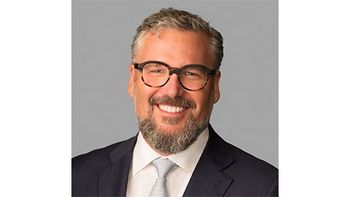
UPS Healthcare Logistics adds 800,000 sq. ft. to its North American distribution centers
Next addition is 'already being planned' says divisional VP, Bill Hook
For at least five years running, UPS Healthcare Logistics has been opening new warehousing/distribution centers around the world; now it’s coming back to North America to expand capacity on this continent. Five new or reallocated facilities are being added, totaling 800,000 sq. ft. and representing a 15% expansion of its global network of 37 facilities, now reaching nearly 6 million sq. ft. Bill Hook, VP, global strategy, says that UPS continues to attract customers from biopharma and med device manufacturers based on a trio of service attributes: regulation-compliant facilities; economics of multitenant facilities (as opposed to ones dedicated to single clients); and a standardized set of operational and performance attributes globally. “Industry wants the ability to grow or shrink its logistics capabilities based on market conditions, which our services allow them to do,” he says. Another driver is the industry’s growing willingness to explore alternative distribution strategies, “including direct-to-pharmacy and direct-to-patient.” The company has doubled the size of its internal order-management capabilities to accommodate this trend, he says.
The specific expansions are in the US and Canada:
- 200,000 sq. ft. in its Burlington, ON, campus, bringing the total there to 600,000 sq. ft., and near three international airports;
- 225,000 sq. ft. in Louisville, KY, bringing the total there to more than 1 million sq. ft. Louisville, besides being the “flagship” Healthcare Logistics facility, is adjacent to UPS’ Worldport global air hub;
- 220,000 sq. ft. at Mira Loma, CA, bringing the total of this northern California facility to over 350,000 sq. ft.
- 90,000 sq. ft. of newly dedicated capacity in Atlanta, GA, now providing over 200,000 sq. ft of capacity
- 55,000 sq. ft in Reno, NV, bringint the total there to over 150,000 sq. ft.
Hook says that UPS Healthcare Logistics is currently running at 80% capacity (including the newly opened space), which is very close to the 85% capacity figure that triggers new space commitments. Locations are already being scouted, he says.
Newsletter
Stay ahead in the life sciences industry with Pharmaceutical Commerce, the latest news, trends, and strategies in drug distribution, commercialization, and market access.





